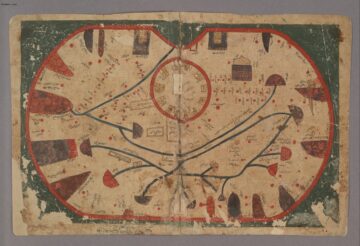The Institute of Ismaili Studies is pleased to announce the publication of a critical edition and summary English translation of the Yamani third da‘i al-mutlaq, Hatim b. Ibrahim al-Hamidi’s Tuhfat al-qulub wa-furjat al-makrub. This book, edited by Professor Abbas Hamdani, has been published under the title, The Precious Gift of the Hearts and Good Cheer for Those in Distress: On the Organisation and History of the Yamani Fatimid Da‘wa. This book is the nineteenth in the Institute’s Ismaili Texts and Translations Series.
Abbas Hamdani, Professor Emeritus from the University of Wisconsin-Milwaukee, has a long-standing relationship with the IIS during which he has donated around 300 manuscripts, inherited through seven generations of his family, to the Institute’s Library. His scholarly expertise covers a wide range, including medieval Islamic philosophical thought and heresiographical literature, especially with regard to the twelfth-century text, the Tuhfat al-qulub (The Precious Gift of the Hearts).
The original work, Risalat Tuhfat al-qulub, was written at a time of great change. It followed the collapse of Fatimid rule in Egypt, Sulayhid rule in Yaman and the Ayyubid conquest of both territories, all of this in the context of the Crusades and the survival of the Tayyibi Ismaili community in the midst of a great upheaval in Middle Eastern politics.
The text of the Risalat Tuhfat al-qulub acts in the manner of a manifesto for the future conduct of the Tayyibi da‘wa providing a history of its beginning, its structure and doctrines and, perhaps most notably, highlighting the fact that its religion was of more importance than Yamani ethnicity.
This critical edition begins by looking at Sulayhid Yaman and the emergence of the Tayyibi da‘wa through the time of the da‘i Hatim b. Ibrahim al-Hamidi and then moves through the study of various phases in the formation of Shi‘i communities with the aid of genealogical tables.
This publication will appeal to all students of heresiographical literature and all those interested in the emergence of the Tayyibi da‘wa.






